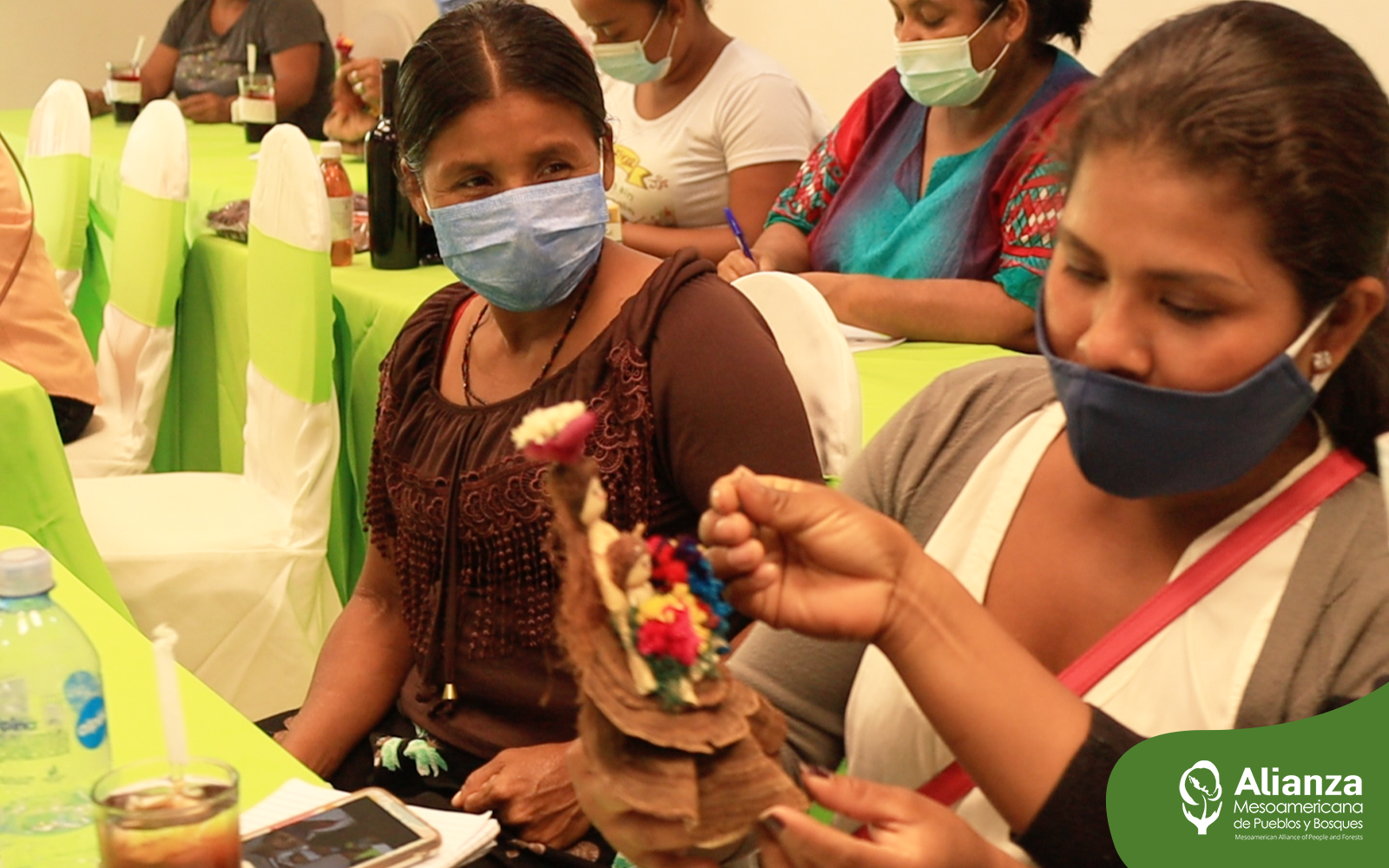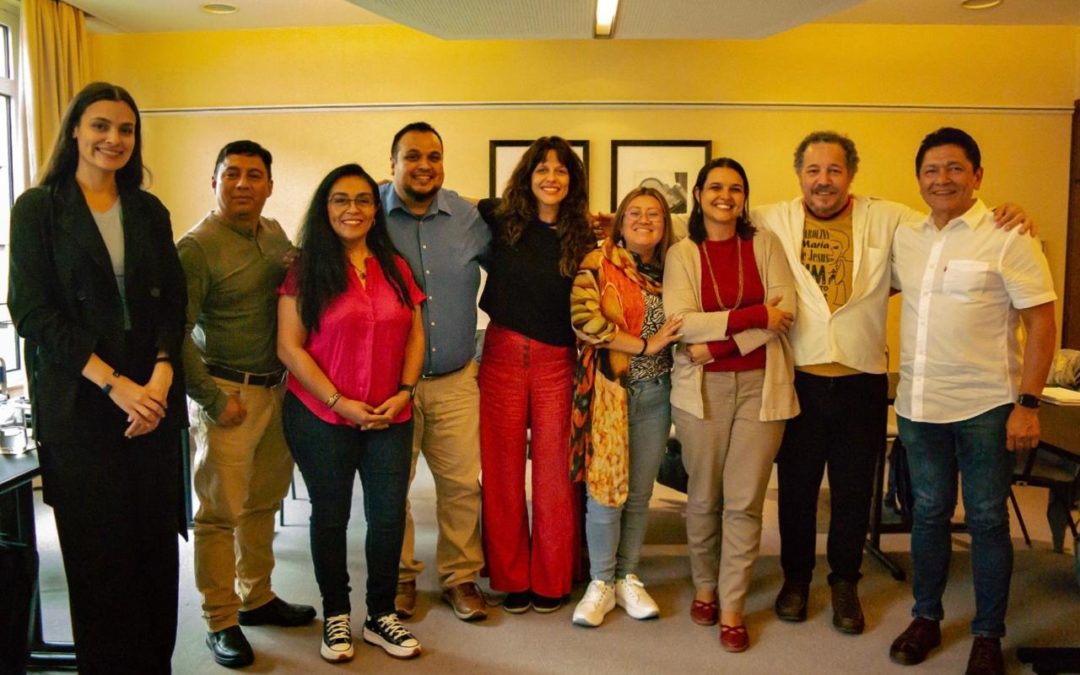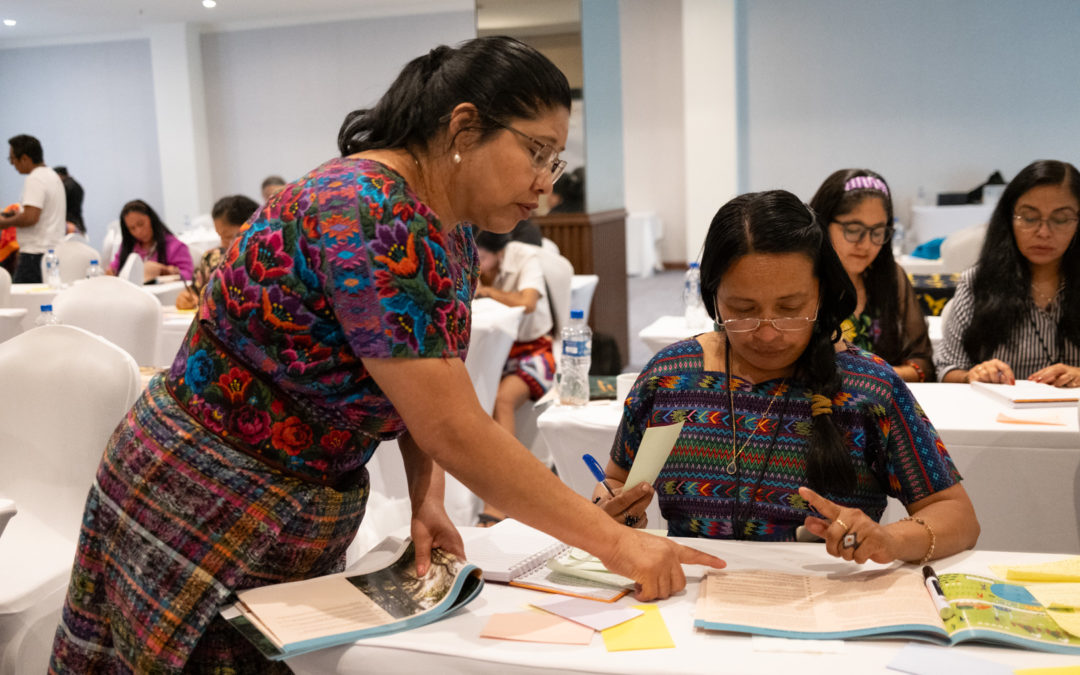This week, April 26-30, the “Regional Exchange of Indigenous and Community-Based Women’s Forestry Entrepreneurship” took place in Nicaragua, to facilitate sharing knowledge and experiences among women forestry producers from Mesoamerica and Colombia to improve food security and productive empowerment.
The first three days of the meeting, Monday, April 26, Tuesday, April 27, and Wednesday, April 28, FUPROSOMUNIC provided a series of workshops on agroecological practices for Mayangna women. The first workshop was on food processing and preparation in solar stoves. The second workshop was an introduction to the bio-intensive sowing method to restore soils and to grow organic food. The third day was on solar drying of fruits and edible plants for storage in periods of scarcity; as well as an introduction to beekeeping.
Thursday 29th was the day of the Regional Forest Enterprise Exchange, transmitted live via zoom, with the participation of indigenous and community women leaders from the following organizations: AMICA from the Atlantic Coast of Nicaragua, Ujum from Honduras, Mayangnas Women’s Government, ACOFOP from Guatemala, OPIAC from Colombia and women from the north and south of Nicaragua such as FUPROSOMUNIC, NOCHARI and Fundación entre Mujeres (FEM).
The meeting, which included the sharing of successful forestry enterprises in the region, strengthened the platform for dialogue and interaction among women producers in the face of the international climate agenda. Participants also enriched their knowledge with new productive and value-added techniques, to identify opportunities to improve their practices with new technologies for the adaptation and mitigation of climate change impacts.
On the last day, Friday, April 30, a field tour was conducted to learn about the experiences of FUPROSOMUNIC and NOCHARI, organized groups of women producers using technologies for the cultivation, processing, and storage of fruits, seeds, and vegetables, which seeks to contribute knowledge to mitigate the effects of climate change and improve food security in their communities, contributing to women’s empowerment and the practice of sustainable alternatives that generate positive impacts on the economy, social, health, environment and gender equity.
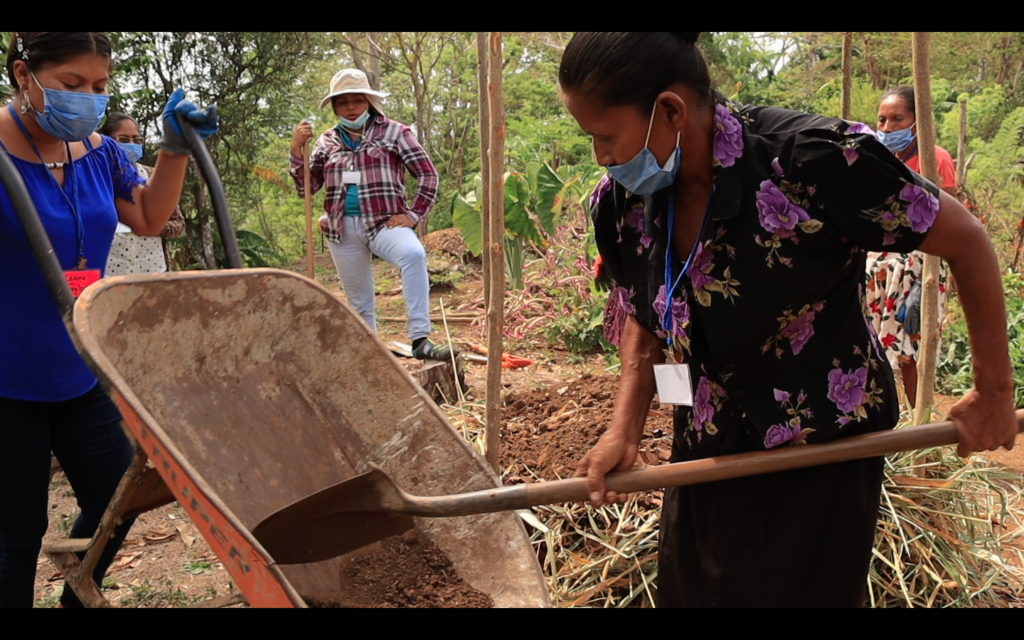
The event also was a space for reflection on opportunities for indigenous and community-based women’s forestry enterprises in the Mesoamerican region and Colombia in post-conflict zones, as well as for improving the productive vision of the women participants based on the experiences of movements of other women producers in the region with high political participation.
This meeting was organized by the Coordinator of Territorial Women Leaders of Mesoamerica (CMLT), a semi-autonomous unit of the Mesoamerican Alliance of Peoples and Forests (AMPB) to coordinate and advocate on issues relevant to women who cohabit the most important forests in the Mesoamerican region.
